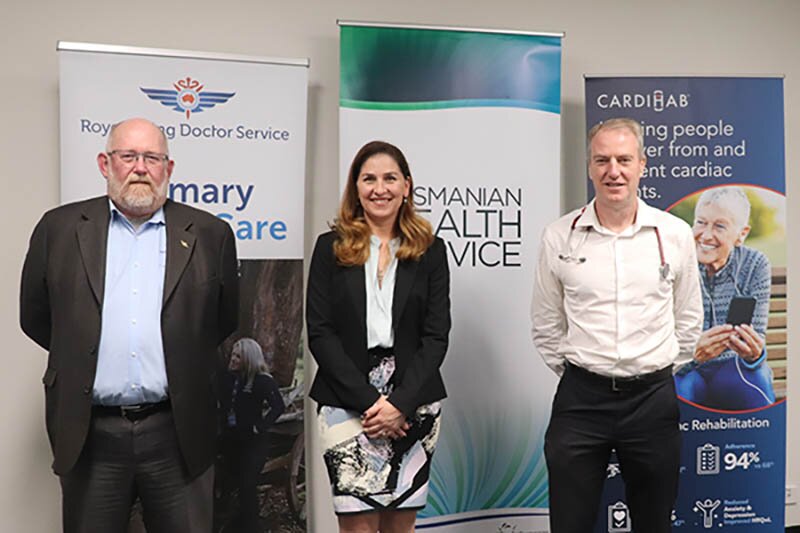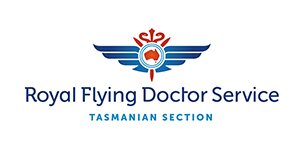Cardihab to partner with Tasmanian Health Service and Royal Flying Doctor Service
Cardihab is pleased to announce a state-wide agreement with the Tasmanian Department of Health and Royal Flying Doctor Service Tasmania to provide digital cardiac rehabilitation services in public hospitals across the state.
Cardihab is a landmark Australian digital health platform that facilitates the virtual delivery of cardiac rehabilitation services for patients recovering from cardiac events and living with heart disease.
Cardihab Chief Executive Officer Helen Souris said Cardihab presented a solution that could improve access to critical cardiac rehabilitation programs for patients recovering from cardiac events and living with heart disease in Tasmania, particularly those in regional and remote areas.
Patients complete the virtual program using the Cardihab app remotely while under clinical supervision by qualified healthcare professionals. Supported by weekly phone or video consultations from their clinician, patients can benefit from the convenience of technology enabled care from their home.
"Using the Cardihab platform to manage their cardiovascular disease and complete their rehabilitation program patients under the care of clinical staff can continue to receive high-quality support virtually from the convenience of their home," Ms Souris said.
"It is an ideal solution for people whose busy lives prohibit them from attending traditional face-to-face clinics, people living in remote areas, patients who are less mobile and throughout COVID-19."
"Cardihab increases patient care delivery options, enables clinical professionals to deliver service efficiently and supports both patients and clinicians growing demand for proven digital health programs that are personalised, convenient and flexible," she said.
Royal Flying Doctor Service Tasmania Chief Executive Officer John Kirwan said that Cardihab will build on the success of its Prime Mover Phase III heart/lung rehabilitation service - also supported by funding from Primary Health Tasmania under the Australian Government's Primary Health Networks Program - and reinforce its primary health care team's focus on evidence-based e-health.
"We measure success in many ways, such as reducing unplanned re-admissions to hospital, increased life expectancy for patients, reduced burden on paramedics and emergency departments and enabling people to continue working and contributing economically to their family and society," Mr Kirwan said.
"But it's mainly about an individual's quality of life when they undertake successful rehabilitation - the reduction in stress and fear of triggering another life-threatening event and the positive path back to good health.
"Cardihab will allow our staff to assist our clients in the most remote and rural areas by creating increased access and options for those who would ignore rehab due to barriers of time, cost and distance."
About cardiovascular disease and cardiac rehabilitation
- According to the Australian Bureau of Statistics heart disease is the leading cause of death in Tasmania;
- According to the Heart Foundation the death rate for heart disease in Tasmania is 75.3 per 100,000 people, above the national average of 65.5 deaths per 100,000 people;
- According to research by the Royal Flying Doctor Service, cardiac rehabilitation services, if made available in the bush, could prevent as many as 80 per cent of premature deaths from cardiac disease. Remote Australians are 1.6 times more likely to be hospitalised for coronary heart disease than people in major cities, and 1.3 times more likely to die.
- Throughout Australia one in five emergency flights by the Royal Flying Doctor Service are for heart attack and stroke. An average of 112 patients per-week are retrieved by the RFDS from country areas for heart treatment.
- According to the Australian Bureau of Statistics cardiovascular disease remains Australia's biggest killer, accounting for 44,000 deaths in 2017 and 1.1 million hospitalisations a year;
- The Australian Institute of Health and Welfare forecasts cardiovascular disease to remain the most expensive disease group, rising to more than $22 billion in 2032-33;
- A position paper from the Secondary Prevention and Rehabilitation Section of the European Association of Preventive Cardiology recently recognised cardiac rehabilitation as one of the most cost-effective interventions to ensure favourable patient outcomes across many cardiovascular diseases, reducing cardiovascular mortality, morbidity and disability, and increasing quality of life;
- A study in the Journal of the American College of Cardiology showed that cardiac rehabilitation achieved a 26 per cent reduction in mortality and an 18 per cent reduction in readmissions, as well as quality of life benefits.

 About Royal Flying Doctor Service Tasmania
About Royal Flying Doctor Service Tasmania
Based at Launceston Airport, Western Junction, RFDS Tasmania was officially formed on September 12, 1960, and has steadily grown over the past 60 years from a solely aeromedical service into a holistic health care provider servicing almost every municipality in the state.
With the aim of tackling chronic disease and reducing the rate of hospital admissions RFDS Tasmania delivers a range of primary health care services and community projects to benefit all Tasmanians, including an award-winning dental outreach program and mental health and physical health programs that are all provided free of charge thanks to a combination of Federal and State Government funding.
Mobile and visiting dental care services are currently operating on King and Flinders Islands, in northern, north-eastern and north-western Tasmania plus more recently in the Fingal Valley. Its primary health services are delivered in 11 local government areas and includes youth mental health services and recently introduced mobile health hub buses to reach more rural communities.
RFDS Tasmania is accredited against the National Safety and Quality in Health Care Standards and certified against the National Mental Health Standards
It also runs an education program that involves primary and secondary schools and a suite of online education resources for teachers and students, and it offers a variety of scholarships for those training in medicine, nursing and dentistry.
Prime Mover is an exercise and educational based therapy program developed by RFDS Tasmania's primary health care team.
It is designed for people living in rural and remote areas with stable heart and lung conditions.
The aim of the program is for participants to return to an active and satisfying life, and help prevent the occurrence of cardiac and pulmonary events.
It involves a team of physical health workers, exercise physiologists and physiotherapists, often employed from the area in which they work, conducting one-on-one consultations, group exercise sessions and education to support individuals living with chronic conditions.
Not only does the RFDS provide exercise therapy and lifestyle management support, but it identifies any potential limitations to physical activity and explores appropriate referral pathways.